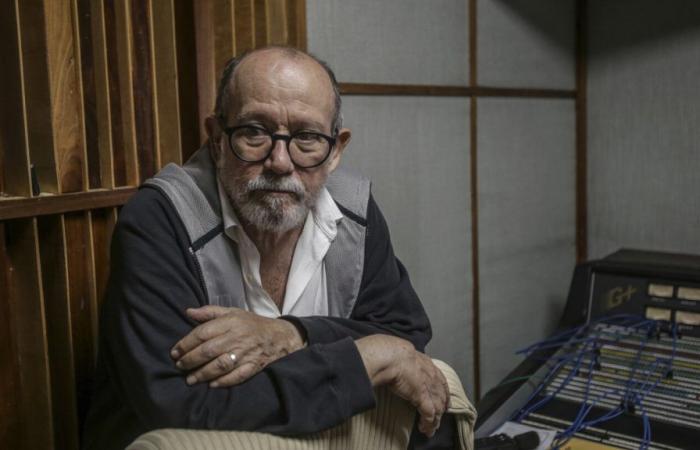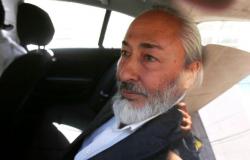HAVANA (AP) — It was the 1960s and he was a thin young man with a thin beard leaning over a guitar singing with his reedy voice to the Cuban revolution. His trova sparked love or gained adversaries.
Six decades later, Silvio Rodríguez is one of the most prominent Spanish-speaking poets and musicians and his hundreds of songs have accompanied several generations of Latin Americans.
The political process to which he committed himself is going through a dramatic moment undermined by a harsh economic crisis and Rodríguez recognizes how much his country hurts him.
“It’s terrible,” he exclaimed several times about the situation in his homeland while sitting in his recording studio during an interview with The Associated Press.
“It is very strong, it is very strong,” he said about inflation, the unproductivity of the land, the migration of hundreds of thousands—especially young people—and the deteriorated social security experienced in Cuba.
Rodríguez acknowledged that he has never stopped considering himself a man of the left and that his dreams of a more humane and just society remain intact, but he resists this being an excuse to hide criticism or overlook the negligence of the revolutionary process in the island.
After the COVID-19 pandemic and the increase in US sanctions on Cuba, the Caribbean nation was hit by a dramatic financial crisis. The difficulties worsened with a package of reforms approved by the island government in 2021 and which ended up skyrocketing prices and dollarizing the economy.
The situation sparked the first popular demonstrations in decades. Thousands of people took to the streets in July 2021 demanding better living conditions, an end to blackouts and some changes in the political model. The protests were repeated at the end of 2022 and in March of this year.
“What most people everywhere want is to live their lives peacefully, to progress a little, to have some possibilities,” explained Rodríguez, for whom, however, the successes of the Cuban model such as public health or education are unquestionable. mass education in these decades.
“The current situation undermines any ideal conviction. Reality is hard for most of our people, very hard,” she reflected. “And that starting with the number of old people who dedicated their lives to the revolution body and soul and now, imagine, with the retirements they have, they don’t even have enough for a carton of eggs.”
Rodríguez clasps his hands and turns his toes slightly inward while speaking with AP about his new album titled “Quería Saber” with 11 songs composed in recent years.
In his recording studio there is a piano, a guitar, a black music stand, several microphones, gray walls covered with insulating fabric for soundproofing, and some wooden stools with turned legs. Behind glass are the sound consoles.
The 77-year-old troubadour laughs loudly when it is suggested that, despite his long career, he seems not to give up on this new production—his 22nd album.
On his latest album there are a couple of intimate songs like “Ángel Ciego” or “Ciudad”, but above all the social and political take precedence.
He highlights “Para botar el sofa” which he himself describes as an “editorial song” and which plays with a popular Cuban saying according to which a man finds his wife having an affair with another man and, instead of getting rid of her, he throws away the chair in which he discovered the unfaithful woman.
“And while they imagine they are good at conscience, the reality is a mess of inefficiency. “The youth flee en masse and they get upset because a mouth is not of race or of its sidewalk,” reads part of the lyrics. “And like the mocked spouse, one morning they throw the least complicated thing out the window.”
“To pronounce we, to complete the unity, we will have to count on the other, the lights and the darkness,” closes the song that appears as composed in 2016 but recorded for the first time on this occasion.
The works of Rodríguez – who has no party militancy although in the 90s he was a deputy to the National Assembly of People’s Power, the Parliament – have always captured the spirit of the time that fell to his lot.
“I identify with what has been called the left,” he commented, immediately adding “I don’t like absolutisms, I don’t like isms.”
The troubadour has not lacked adversaries who point him out for clearly taking sides in favor of the revolution and angrily agitate his songs from the 70s with lyrics that suggest armed violence as a path to achieve transformations.
But he doesn’t care about that type of criticism. “It doesn’t matter” what they think, he remarked.
Born in the small city of San Antonio de los Baños near Havana, on November 29, 1946, Rodríguez was a teenager when the revolution led by Fidel Castro triumphed in 1959, a figure he continues to admire.
Like many in his generation and those who came later on the island, he joined the revolutionary tasks: he was a literacy teacher and militiaman and traveled to Angola as part of the Cuban missions that helped defeat apartheid.
In the mid-60s he debuted with his guitar and began his international tours that over the years took him from Germany to Chile, passing through Argentina, Mexico, Spain, Denmark, Sweden, Nicaragua, Peru and the United States.
He released twenty albums and wrote more than 500 songs with which he filled stadiums with fans who idolized him for his music and his poetry full of powerful metaphors. He shared the stage and projects with Luis Eduardo Aute, Miguel Bosé and Olga Tañón, among others.
For now and despite the fact that invitations are flooding in, he assured that he has no plans to go out on stage to present “I Wanted to Know” live.
Beyond the artist is the man married to the renowned flutist Niurka González for more than two decades who likes spaghetti carbonara and reading at home where Malva, the youngest of his seven children, studies music.
Rodríguez has his routine: he arrives every day at 10 in the morning to his studio “ojala”, two adjoining houses painted white and a bit labyrinthine with stairs that lead to several offices and whose walls hang posters of tours and concerts and some paintings by Cuban painters. He answers emails, composes, records.
“I never took myself that seriously,” he answered modestly when asked how he deals with fame. “One is the result of work… The virtue that songs have is that they accompany people. If any of my songs are good for that, who could want more?
___
Associated Press correspondent Cristiana Mesquita contributed to this interview.
___
Andrea Rodríguez is in X as www.twitter.com/ARodriguezAP






